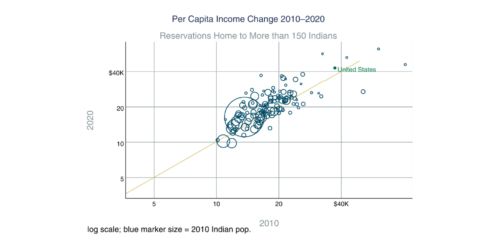Cambridge, MA and Tucson, AZ—The Harvard Project on American Indian Economic Development (Harvard Project) and the Native Nations Institute (NNI) at University of Arizona are pleased to announce the release of a ground-breaking Nation Building Toolbox dedicated to tribal courts and justice systems. The Tribal Justice Systems Toolbox (Justice Toolbox) is the third EdTech platform in a series of self-governance tools released by the Harvard Project and NNI. The Justice Toolbox is equipped with samples of nationally and internationally recognized Indigenous court systems in hopes of sharing effective models and encouraging best practices. Visitors to the Toolbox can access digital resources that feature testimonials, articles, manuals, codes, interactive maps, and advice from a diverse array of justice experts from across Indian Country.
The Tribal Justice Systems Toolbox is overseen and monitored by two leading experts in the field, Judge Korey Wahwassuck, former Chief Judge of Leech Lake Band of Ojibwe Tribal Court and now a District Court Judge, Itasca County, Minnesota and Jennifer Fahey, Advocate and Criminal Justice Consultant. Together they have worked to bring together quality resources for communities seeking to improve their justice systems.
Over 30 years of research by the Harvard Project finds that a Native nation’s court system is key to successful nation-building. Harvard Project research director, Miriam Jorgensen shares, “a strong court system protects against attacks on sovereignty such as other governments’ meddling, community distrust, political exploitation, or weak law application.” Judge Korey Wahwassuck adds, “The biggest challenges facing tribal justice systems today are a lack of adequate resources and tribal governments that undermine the independence of their own judiciaries. Both of these can cripple tribal justice systems, and, ultimately, tribal nations.” As one of the three toolboxes launched so far, the Justice Systems Toolbox continues to prioritize the importance of Nation Building across Indian Country.
The Nation Building Toolboxes are jointly presented and hosted by the Harvard Project on American Indian Economic Development at Harvard University and the Native Nations Institute at the University of Arizona. They feature the contributions of partners and subject-matter experts with valuable knowledge to share. As multimedia platforms, the online Toolboxes shine a light on the lessons and best practices of Native nations in the US and beyond. The Tribal Justice Systems Toolbox and other self-governance tools can be obtained online.
About the Harvard Project on American Indian Economic Development
The Harvard Project on American Indian Economic Development is based in the Ash Center for Democratic Governance and Innovation at the John F. Kennedy School of Government, Harvard University. Through applied research and service, the Harvard Project aims to understand and foster the conditions under which sustained, self-determined social and economic development is achieved among American Indian nations. The Harvard Project’s core activities include research, education, and the Honoring Nations tribal governance award program.
About the Native Nations Institute
The Native Nations Institute (NNI) was founded in 2001 by The University of Arizona and the Morris K. Udall and Stewart L. Udall Foundation as a self-determination, self-governance, and development resource for Native nations. It is housed at the university’s Udall Center for Studies in Public Policy.
NNI assists in building capable Native nations that can effectively pursue and ultimately realize their own political, economic, and community development objectives. It provides Native nations and other policy makers with accessible research and policy analysis of governance and development in Indian Country and with comprehensive, professional training and development programs designed to meet the needs of Indigenous leadership and management.


